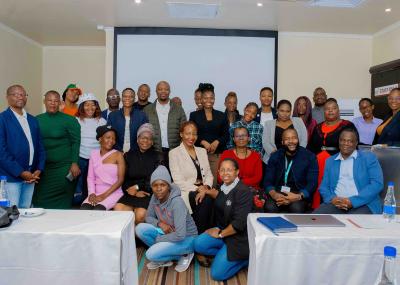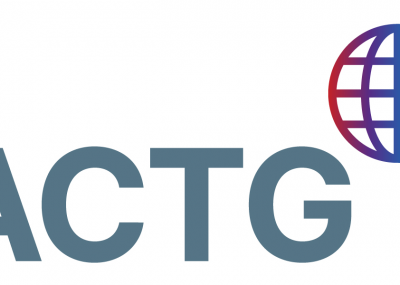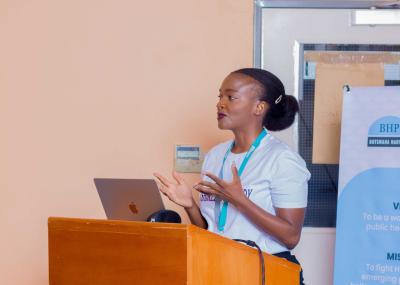Broadly neutralizing antibodies (bNAbs) may provide an alternative to standard antiretroviral treatment (ART) for controlling HIV-1 replication and may have immunotherapeutic effects against HIV-1 reservoirs. We conducted a prospective clinical trial with two HIV-1 bNAbs (VRC01LS and 10-1074) in children (n = 25) who had previously initiated small-molecule ART treatment before 7 days of age and who continued treatment for at least 96 weeks. Both bNAbs were dosed intravenously every 4 weeks, overlapping with ART for at least 8 weeks and then continued for up to 24 weeks or until detectable viremia of HIV-1 RNA rose above 400 copies per milliliter in the absence of ART. Eleven (44%) children maintained HIV-1 RNA below 400 copies per milliliter through 24 weeks of bNAb-only treatment; 14 (56%) had detectable viremia above 400 copies per milliliter at a median of 4 weeks. Archived HIV-1 provirus susceptible to 10-1074, lower birth HIV-1 DNA reservoir in peripheral blood mononuclear cells, sustained viral suppression throughout early life, and combined negative qualitative HIV-1 DNA polymerase chain reaction and negative HIV-1 serology at entry were associated with maintaining suppression on bNAbs alone. This proof-of-concept study suggests that bNAbs may represent a promising treatment modality for infants and children living with HIV-1. Future studies using newer bNAb combinations with greater breadth and potency are warranted.
Publications Date
Journal
Sci Transl Med
PMID
37406137
DOI
10.1126/scitranslmed.adh0004.
Abstract
Document




